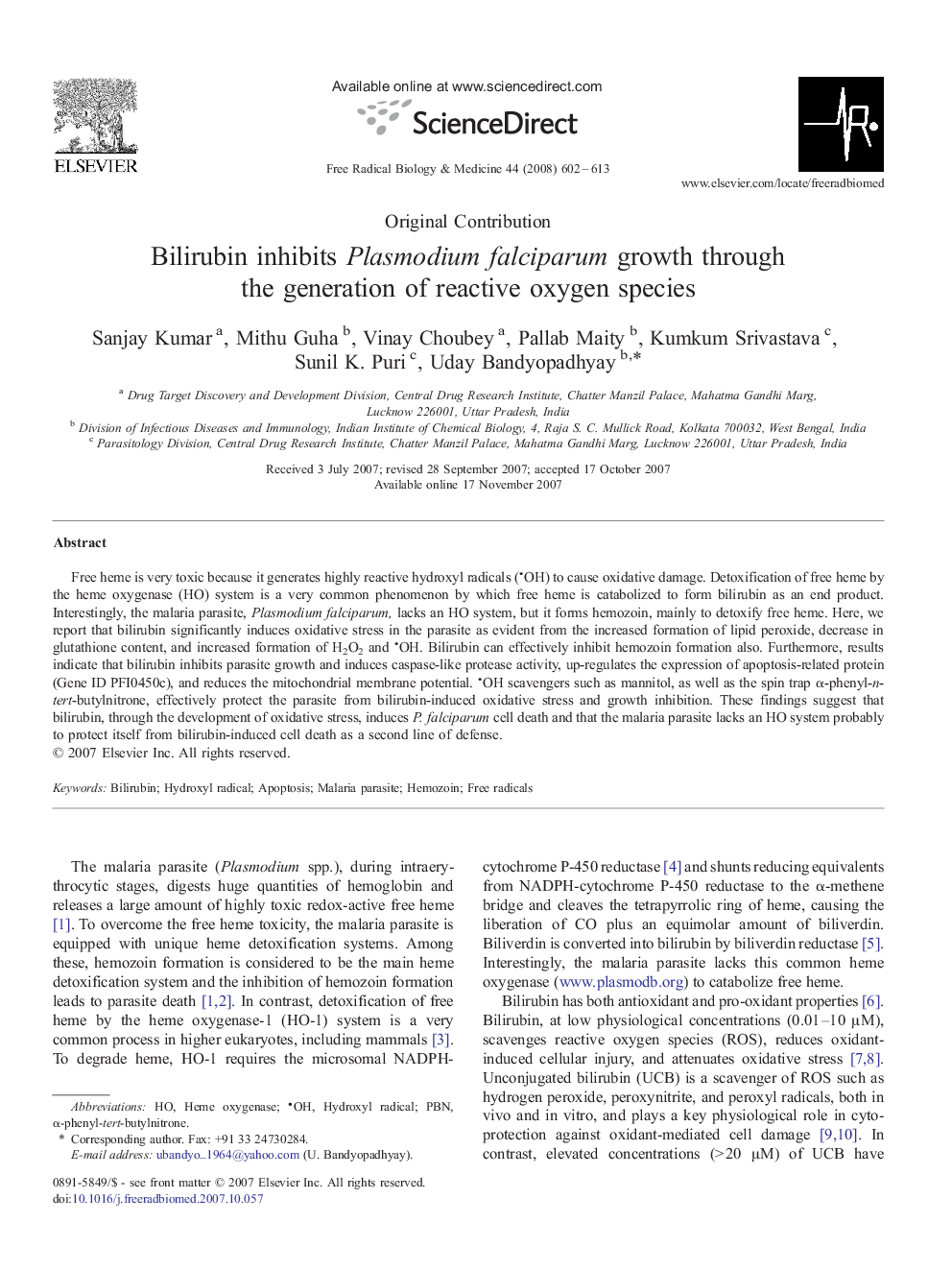| کد مقاله | کد نشریه | سال انتشار | مقاله انگلیسی | نسخه تمام متن |
|---|---|---|---|---|
| 1911032 | 1046798 | 2008 | 12 صفحه PDF | دانلود رایگان |

Free heme is very toxic because it generates highly reactive hydroxyl radicals (OH) to cause oxidative damage. Detoxification of free heme by the heme oxygenase (HO) system is a very common phenomenon by which free heme is catabolized to form bilirubin as an end product. Interestingly, the malaria parasite, Plasmodium falciparum, lacks an HO system, but it forms hemozoin, mainly to detoxify free heme. Here, we report that bilirubin significantly induces oxidative stress in the parasite as evident from the increased formation of lipid peroxide, decrease in glutathione content, and increased formation of H2O2 and OH. Bilirubin can effectively inhibit hemozoin formation also. Furthermore, results indicate that bilirubin inhibits parasite growth and induces caspase-like protease activity, up-regulates the expression of apoptosis-related protein (Gene ID PFI0450c), and reduces the mitochondrial membrane potential. OH scavengers such as mannitol, as well as the spin trap α-phenyl-n-tert-butylnitrone, effectively protect the parasite from bilirubin-induced oxidative stress and growth inhibition. These findings suggest that bilirubin, through the development of oxidative stress, induces P. falciparum cell death and that the malaria parasite lacks an HO system probably to protect itself from bilirubin-induced cell death as a second line of defense.
Journal: Free Radical Biology and Medicine - Volume 44, Issue 4, 15 February 2008, Pages 602–613